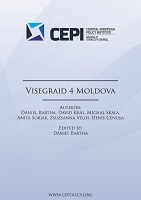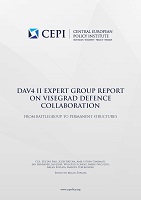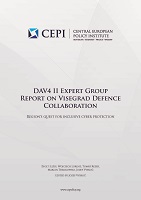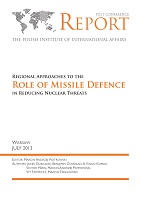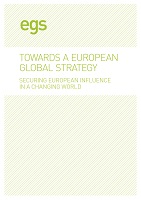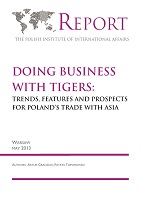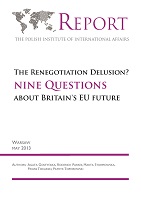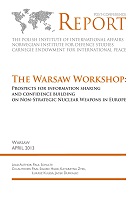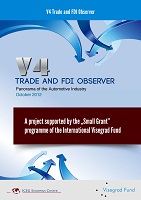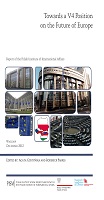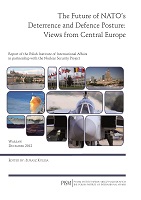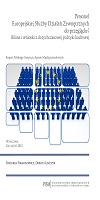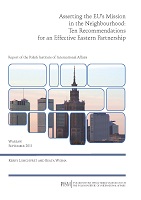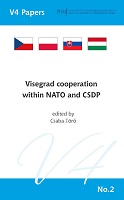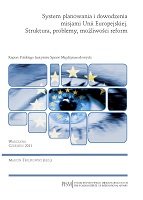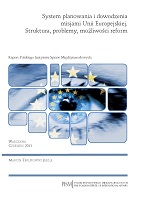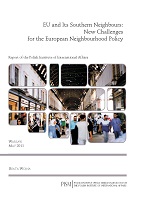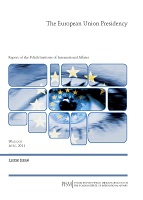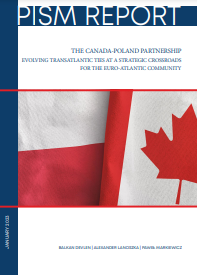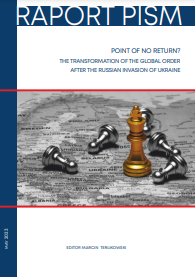Point of No Return? The Transformation of The Global Order After The Russian Invasion of Ukraine
Author(s): / Language(s): English
Keywords: Russia; Ukraine; Invasion; Global Order; Transformation; Changes;
The day everything changed, a critical moment, a turning point in history - this is how many commentators have described the 24th of February 2022. The day of the massive Russian invasion of Ukraine became not only the nominal date of the beginning of a full-scale war but also symbolic of a fundamental change in the international order comparable to 1 September 1939, 9 November 1989, or 11 September 2001. But is it really the case that nothing will be the same in international relations after 24 February 2022? For many non-Europeans, the Russian-Ukrainian war remains a regional one, with limited consequences for other parts of the world. Some may add that these regions have also suffered from equally disastrous, if not more deadly conflicts in recent years. The Russian diplomats often point out that Moscow’s relations with some countries have not deteriorated as compared to the pre-war period, and are actually deepening and intensifying. To further complicate matters, some experts view the events of 24 February 2022 not as a singular turning point in history, but rather as the next stage of a war waged by Russia against Ukraine, or against the West, that had begun much earlier. It may also be possible to see this particular day as merely an element of a global polycrisis, a series of political, economic, health, humanitarian, climate, and social crises that are overlapping and mutually amplifying their negative impacts. This collection of short analyses from experts with the Polish Institute of International Affairs attempts to answer questions about the scope, nature, and significance of the changes in the international system that were triggered or amplified by Russia’s February 2022 invasion of Ukraine. Central to this approach is the distinction between the reaction of states and international organisations to the war and a change, understood as a profound and difficultto-reverse transformation of the conceptual framework of conducting policy, resulting in a significant and implemented (as opposed to announced) modification of foreign, security, economic or domestic policy. Documenting this change is the focus of the authors of this report. In some cases, the change was radical and almost revolutionary. Examples include the upending of the pre-February 2022 model of the European Union’s relationship with Russia in the energy sphere, as well as the decision by Sweden and Finland to join NATO. In most situations, however, the response to the latest Russian aggression fell within previously observed policy trends or plans, but with a significant acceleration and deepening. The rise of the Global South’s self-identification, China’s international self-positioning in opposition to the “collective West”, or the evolution of the Atlantic Alliance towards a forward defence posture can be seen as falling into this category. Similarly, it was not altogether surprising that Russia’s aggression has brought Ukraine and its European partners closer together, following on Kyiv’s stated political goal. In this case, it is tragic that this change was accelerated by the brutal Russian aggression. The war has also fundamentally changed Russia and its place in the international system. The process is far from finished. So far, neither the predictions that full international isolation of Russia would be possible, nor Vladimir Putin’s hope that victory over Ukraine would place Russia among the great powers co-shaping the global order in the 21st century, have come true. The authors’ adoption of this approach to and definition of change in international relations explains the special place of the United States in this review. Although the U.S. plays a key role in supporting Ukraine and mobilising the West, its response represents a continuation of the foreign and security policy strategy adopted before 24 February 2022, rather than a reshaping of it. Another challenge was the question of the permanence or irreversibility of decisions and processes initiated after 24 February 2022. Given the possibility of domestic changes (e.g., following elections in democratic states, but also changes in the power elite in Russia) or another radical transformation in international relations (e.g., following the use of nuclear weapons by Russia or North Korea), it is difficult to consider any process as fully irreversible. However, the authors of the individual chapters present arguments that, in each case, a political or structural critical mass has been exceeded, making the identified changes difficult to reverse. It is precisely our doubts about the sustainability and irreversibility of the German Zeitenwende that justify omitting it from this review. In the sphere of declarations, this is certainly a revolutionary change in German politics, but one year since the announcement, it remains only partially implemented and still appears to be controversial for significant parts of German public opinion and the political class. We hope that the analyses and projections contained in this collection of essays will provide a starting point for discussion and polemics. The ongoing war is likely to cause further changes and transformations in the international system. The contours of the “new world” that is emerging from the darkness of war are not entirely new, or completely unfamiliar. The 24th of February 2022 became not only a tragic date in Ukrainian and world history but also the beginning of a significant change in international relations. A better understanding of its nature can help us shape optimal strategies for states and international organisations to operate in the new circumstances.
More...
